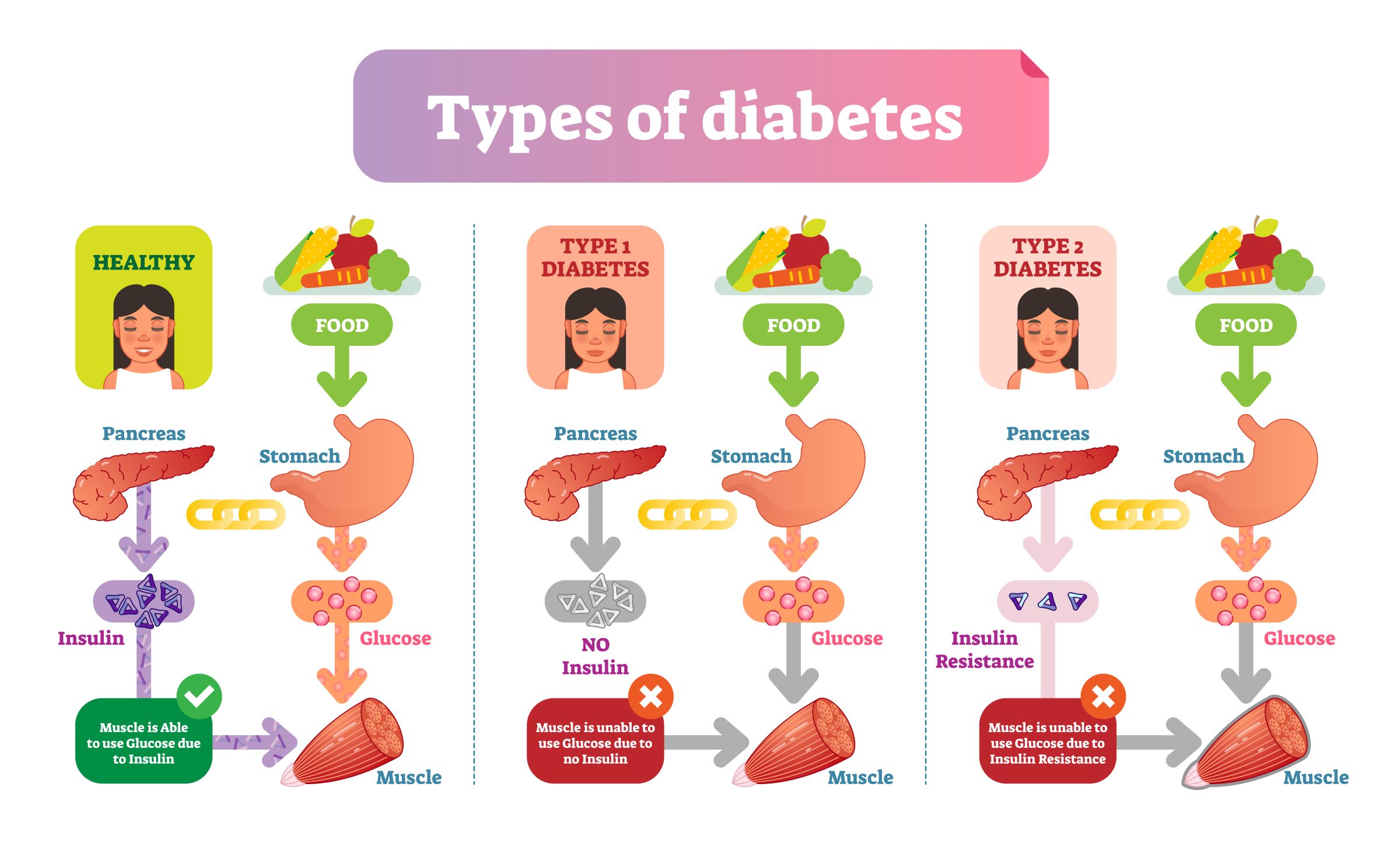News Blast: Your Daily Dose of Information
Stay updated with the latest happenings across the globe.
Sugar Coated Lies: Debunking Common Diabetes Myths
Uncover the truth behind diabetes myths! Join us as we debunk sugar-coated lies and reveal what you really need to know for better health.
The Truth About Sugar: Debunking Diabetes Myths
The truth about sugar has often been clouded by misconceptions, particularly when it comes to diabetes. One prevalent myth is that consuming sugar directly causes diabetes, which is not entirely accurate. Diabetes is a complex condition influenced primarily by a combination of genetics, lifestyle choices, and overall dietary patterns. While it is important for individuals, especially those at risk, to monitor their sugar intake, simply eating sugar doesn't initiate the disease. Instead, excessive consumption of refined carbohydrates and a sedentary lifestyle are major contributors to the development of type 2 diabetes.
Another common myth is the belief that people with diabetes must eliminate all sugar from their diets. In reality, managing diabetes is not about completely avoiding sugar, but rather about understanding how it fits into a balanced diet. Registered dietitians often encourage individuals with diabetes to focus on portion control and carbohydrate counting, allowing them to enjoy sweets in moderation. Incorporating nutrient-dense foods while allowing for occasional treats can help maintain blood sugar levels and promote a healthier lifestyle without creating feelings of deprivation.

Do Carbs Really Cause Diabetes? Separating Fact from Fiction
The question of whether carbohydrates cause diabetes is often surrounded by confusion and misinformation. To clarify, carbohydrates themselves are not the direct cause of diabetes; rather, the issue lies in the type and quantity of carbs consumed. Diets high in refined carbohydrates and sugars can lead to weight gain and insulin resistance, which are significant risk factors for developing type 2 diabetes. In contrast, complex carbohydrates found in whole grains, fruits, and vegetables can actually contribute to a balanced diet that supports overall health.
Moreover, it's essential to recognize that diabetes is a multifaceted condition influenced by various factors, including genetics, lifestyle, and dietary choices. While cutting back on processed and high-sugar carbs is advisable for those looking to reduce their risk, it is equally important to focus on a well-rounded diet. As part of a healthy lifestyle, incorporating the right kinds of carbohydrates can promote better blood sugar control and mitigate the risk of diabetes.
Myth vs. Reality: What You Need to Know About Diabetes Management
Diabetes management is often surrounded by misconceptions that can lead to confusion and poor health decisions. One common myth is that people with diabetes cannot eat sweets or carbohydrates. In reality, the key to effective diabetes management lies in moderation and balance. It is essential to understand how different foods affect blood sugar levels. Incorporating carbohydrates in controlled portions, along with regular physical activity, can help maintain stable glucose levels.
Another prevalent myth is that insulin use indicates that a person's diabetes is worsening. In reality, many people with diabetes use insulin as a preventive measure rather than a reactive one. Insulin therapy can be a critical part of a comprehensive diabetes management plan, allowing individuals to maintain better control over their blood glucose. Understanding these truths about diabetes can empower those affected to make informed choices and live healthier lives.